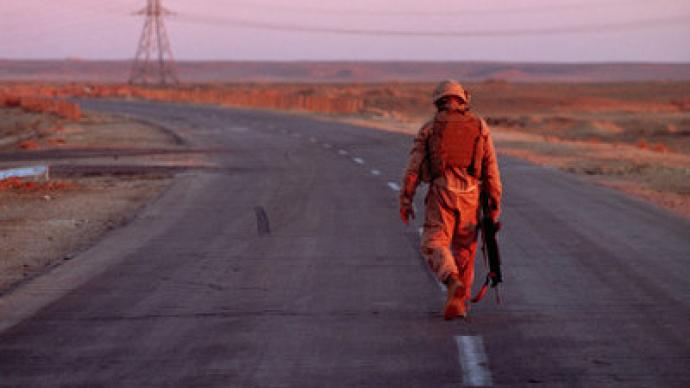American vets: in suicide, many lose the war at home

The memory of recent combat has become a daily nightmare for many US soldiers who returned home from deployments in Iraq and Afghanistan.
Post-traumatic stress can force veterans to kill themselves, bringing the suicide rate among American military personnel to its highest level since the Vietnam War. Each day, 18 American veterans commit suicide. In the last few years, more US military personnel have taken their own lives than have been killed in either Iraq or Afghanistan.The numbers raise a question:where is the battle really happening – in the field or at home? “He was only home for eight months before his demons took him over,” said Mike Bowman, father of an Iraq veteran who killed himself, to the House Veterans Affairs Committee.“My son returned physically but mentally he never returned,” recalled Cheryl Softich, mother of another Iraq veteran who committed suicide. “After a year and a half at home he put a gun to his head and pulled the trigger.”“A year and a half of his life was torture and I couldn’t help him. And they refused to help him, or told him he was number 26 in line,” acknowledged Marianne Schulze, stepmother of an Iraq veteran who took his own life.“I feel cheated that my son’s needs weren’t take care of,” Jim Schulze, father of a Marine, said.These parents share a similar tragedy – one of losing their children who had gone to war, all in Iraq, strong and healthy men, and came back deeply traumatized and haunted by nightmares. Many refuse to seek help from the government in fear it’s going to show on their records and they won’t be able to find employment. But even those who do seek help are often neglected. “I went to apply for a job, I went for unemployment benefits, I went to the garrison’s administration for treatment a year after I was discharged because I was feeling suicidal, and I was discharged, I was refused treatment, actually,” recalls Brian Little, U.S. Navy, California.Brian Little, who had served in Iraq, came to a charity event for homeless veterans because he, too, was homeless, like dozens of other young men and women there.Not only do many come back from war traumatized, but they are often left without a roof over their head. According to the US National Coalition on Homelessness, 40 per cent of homeless men are veterans.The staggering number of those who see no other option but to kill themselves pushed the country’s veteran’s affairs department to start a suicide prevention hotline. Further, they claim they have talked more than 10,000 veterans out of killing themselves. These days Iraq and Afghan veterans fuel the suicide epidemic. Trained responders who speak on the phone with veterans often hear from callers who see no meaning behind the many killings they witnessed. Any war is traumatizing for a soldier, but the suicide rate among vets in the US is now the highest since the Vietnam War. There was no similar surge after World War II. Also, civilians' questioning of the motives of the war is now reflected among many young American vets, whose own doubts drive them even closer to the brink.Looking at the plight of veterans in the US, one can’t help asking: what is the cost of war? Is it the 1.8 trillion dollars the US spent in Iraq and Afghanistan last year, or is it the shattered lives of tens of thousands of soldiers who come back home to find that their battle for survival has only just begun.












